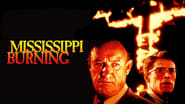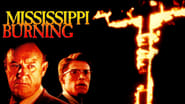Alyssa Black (Aly200)
Films that deal with civil rights issues can be a touchy subject and Alan Parker's 1988 film about true events was a firestorm for controversy. The film's dark subject matter about violence towards the African-American community in 1963 Mississippi remains an important part of shaped the eventual progress to equality for all races. The film tells the tale of two federal agents (Gene Hackman as Rupert Anderson and Willem Dafoe as Alan Ward) sent to the Deep South to investigate the disappearance of three civil rights workers (two African- American men and one Caucasian man). What the men find is the roots of corruption run deep in the town as the local lawmen and KKK members attempt to scare Anderson and Ward off, but their reserve steels the agents against the hate they constantly endure.As the leads, Gene Hackman and Willem Dafoe are the voices of reason among the judgmental and horrible characters in the small town their characters are investigating. Hackman plays the loose cannon officer who will bend the rules to get results while Dafoe is the by-the-books and ethical man, but later converts to Hackman's tactics after tensions boil to a breaking point between Anderson and Ward. The actors' chemistry is palpable as they play off each other in tandem from verbal sparring to their eventual physical confrontation, but without losing a mutual respect for how the other handles the investigation.The narrative is loosely inspired by the actual disappearance and murders of three civil rights workers (as depicted in the film's opening scene). However the movie delves into fiction for the majority of its run-time which does hurt the accuracy of the story. The inaccuracies however do not take away from the gripping power of the story as the movie is more focused on the inherent racism in the South during the 1960s. The movie's subject matter lent to controversy about the violence depicted against the black community, but the film scored Oscar nominations despite the criticism (however star Gene Hackman grew wary about films with such violence which caused him to withdraw from participating in "Silence of the Lambs" after he had bought the rights).Do not miss this film, it'll open your mind on what it was like back in an era of civil unrest.
Coventry
Recently, with my wife, I watched the 2011 film "The Help" which is a truly brilliant movie that I can only recommend wholeheartedly. That same movie also sparked my desire to dig up some other terrific films about civil rights, and then it doesn't take too long before you end up at Alan Parker's "Mississippi Burning". Although nearly 30 years old now, this is still an immensely powerful and often shocking tale inspired by the real-life murders of 3 young activists by members of the Ku Klux Klan in a small Mississippian county in the spring of 1964. I'm European and there isn't too much known around here regarding the facts of this case, but I can easily imagine that turning this true crime case into a fairly large-scaled film production much have caused quite a bit of amok and controversy even 24 years later. Still, even though the references towards the so-called 'Mississippi civil right workers' murders' case are unmistakable, director Alan Parker primarily approaches the events from a more objective viewpoint by focusing on the FBI investigation. As the sudden disappearance of the 3 youngsters in rural Mississippi is considered alarming (perhaps because 2 of them are Caucasian…), the FBI sends two agents over to the Magnolia State. Alan Ward is a young graduate and ambitious city agent who strictly follows the protocol, whereas Rupert Anderson is a former Mississippi small county sheriff himself and uses more unorthodox methods to find out the things he want. Needless to say their styles and personalities often clash, but it's Anderson who makes the most progress in the case, especially when he develops a tender – almost poetic, in fact – relationship with the wife of the sadist deputy (and KKK-member) Clinton Pell. Admittedly, you could blame director Alan Parker and scriptwriter Chris Gerolmo their excessive overuse of stereotypes… All the FBI folks (except for Anderson) are uptight desk clerks with fancy suits, all the black people are mute victims, the women are docile and petrified wives and all the racist rednecks are ignorant and violent scumbags. Of course, just because the stereotypes are such opposites, the confrontations between them are extremely intense and atmospheric. The suspense literally mounts when the rednecks are relentlessly chasing an innocent black guy, or when Agent Anderson nonchalantly walks into the unofficial KKK clubhouse. Another reason why I personally don't mind the use of stereotypes is because it gives the fantastic cast the opportunity to showcase their talents. Awesomely talented guys like Michael Rooker, Brad Dourif and Pruit Taylor Vince are truly brilliant in depicting their vile and loathsome Southern redneck characters. But the greatest performance undeniably comes from Gene Hackman, as he almost naturally shapeshifts between hard-boiled law enforcer and tenderly comprehensive gentleman during his sequences with Frances McDormand. Another umpteenth brilliant performance from one of the greatest actors of the 70s, 80s and 90s.
tomgillespie2002
The main question looming over the head of Alan Parker's Mississippi Burning is whether or not the film has a moral responsibility to tell its true-life tale of racial hatred and murder in Civil Rights Act- era Mississippi exactly how it happened, or if artistic license grants the creators of the film the right to tell an entertaining story that maintains a powerful message of social injustice and equal rights. I am of the opinion that any film can change events for the sake of a digestible narrative, as long as the facts aren't muddied for the sake of fitting a films own agenda. Like countless old World War II movies that softened the horrors of war or fabricated tales of heroism, a film isn't required to be a moving Wikipedia page as long as its heart is in the right place.Mississippi Burning opens with the brutal slaying of three Civil Rights activists - two white men and one black - by members of the Ku Klux Klan, in an event that would capture the attention of the entire nation back in 1964. Two federal agents are sent in to investigate, Agent Rupert Anderson (Gene Hackman), a former Mississippi sheriff well accustomed to the attitudes of the small- town police forces in the state, and determined liberal Alan Ward (Willem Dafoe). Upon arrival, it doesn't take long for the agents to suspect widespread corruption within the police ranks and a possible cover-up. Anderson takes a hands-on approach of mingling with the locals and delivering thinly-veiled threats, while Ward respects rules and rank, bringing in over a hundred new agents to tackle the ever-increasing conspiracy.The idea to tell this story, which is one of the key events that led to the signing of the Civil Rights Act, through the eyes of two white men would be instantly scoffed at nowadays throughout social media, and perhaps rightly so. It is most importantly a story of the suffering of African-Americans, and of their bravery and spirit in taking a stand against it. Yet while Mississippi Burning takes a procedural, buddy- cop movie approach, it highlights how ultimately powerless the agents investigating the case are. Anyone familiar with the story will know that the men responsible for the murders were eventually brought to justice, but this is only one case in a country brimming with racial tension as social integration is introduced. It would take people such as the activists murdered in the film and the many Civil Rights demonstrations carried out in defiance that would ultimately lead to changes.At its best, the film is successful in making you feel extremely angry. As various African-Americans are lynched or attacked leaving a church by gangs carrying weapons, you, along with the bemused Agent Ward, question how such hate for another race can manifest itself within such a large portion of a community. With the FBI becoming increasingly frustrated at the lack of co-operation from the residents of the town, the film somewhat indulgently gives us a scene of Anderson having an off-the-record word with suspected Klan members, particularly Deputy Pell (Brad Dourif) and hot-head redneck Frank (Michael Rooker). It's a punch-the-air moment of badassery, and one of many such scenes that allow the film to be entertaining as well as thought-provoking. It's far from perfect of course, with a shoe-horned romance between Anderson and Pell's suffering wife (Frances McDormand) in particular feeling wholly unnecessary, but this is a powerful and beautifully-made piece featuring one of Hackman's best performances.
elliston65
This film is a fictional re telling of the FBI investigation into the disappearance of three civil rights workers during the 1964 voter registration drive in Mississippi. Directed by British director Alan Parker(Birdy,Angel Heart) it focuses on two contrasting FBI agents. One is Alan Ward(Willem Dafoe), you and idealistic, and the other Rupert Anderson(Gene Hackman) is older and shrewder. Both men want to solve the case,but their different styles mean that they keep butting heads. Anderson, a Southerner,understands the people.He may not be a racist himself, but he knows what motivates people. The story he tells Ward about an incident in his childhood is very telling. He is fully aware about what is right and wrong. Ward on the other hand, is confused by the actions of Southerners.He actually says"What is wrong with these people?" which highlights his anger and frustration.In many ways, this is Hackman's film. He fully deserved his Oscar nomination for Best Actor.Parker does not skimp on the violence, he shows you just how cruel the Ku Klax Klan can be in their use of terror. Churches are burnt down and people are beaten. Unlike the recent film Selma, the violence is not watered down. We also have a sub plot of Anderson getting close to one of the local women by played by future Oscar winner Frances McDormand. Her husband Brad Dourif's Deputy Pell may actually be part of the Ku Klux Klan. Look out for small parts from Tobin Bell, Frankie Faison,Michael Rooker and Park Overall.If I have one complaint about this film, it is that it does not have a proper black character. Most of the black actors portray victims of violence or passive bystanders.Great film from the 1980s that hardly gets shown on TV anymore.












